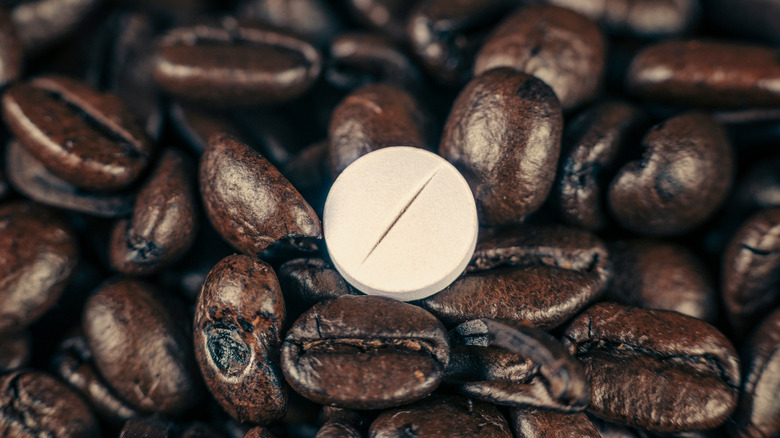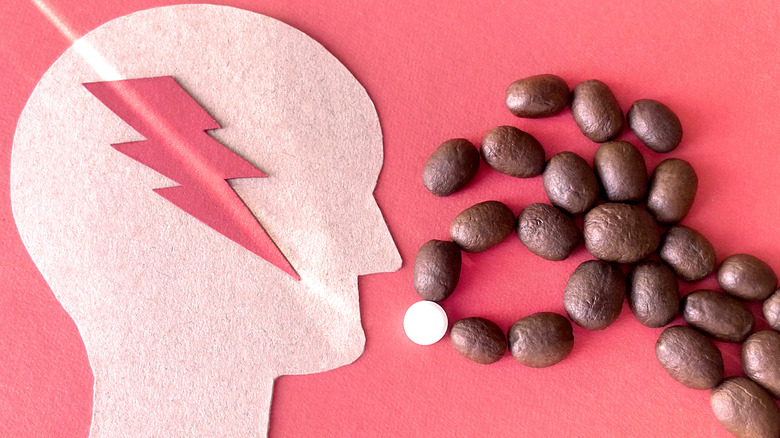Is It Safe To Take Caffeine Pills?
Caffeine pills are supplements that are designed to help keep you alert and awake by stimulating the central nervous system, according to Medical News Today. The pills are often used to help increase energy and ward off sleepiness while working or studying for an exam. Much like coffee and energy drinks, these supplements contain high doses of caffeine, which can help temporarily boost your energy and focus and make you feel less tired or drowsy. Around 85% of the U.S. population consumes at least one caffeine beverage daily, attesting to the drug's popularity.
Caffeine pills can either contain natural or synthetic caffeine, but the exact amount can vary depending on the brand. However, caffeine pills tend to contain slightly more caffeine than other caffeinated products. On average, a single pill contains anywhere from 100 to 200 milligrams of caffeine per capsule or tablet, whereas an 8-ounce cup of coffee usually contains around 80 to 100 milligrams of caffeine (via Medical News Today).
Caffeine pills are recognized as safe
While caffeine — in beverage and pills — are generally considered safe by the U.S. Food and Drug Administration (FDA), you don't want to overdo it (via Health). If you're a healthy adult, you can safely consume 400 milligrams (or approximately four to five cups) of caffeine per day. However, you may not want to exceed that daily amount, as higher doses can be risky for pregnant women, adolescents, and people with chronic health conditions. Unpleasant side effects after consuming too much caffeine may include an upset stomach and increased heart rate.
Too many caffeine pills can potentially increase a person's chance of experiencing side effects as the pills don't have beneficial compounds naturally found in caffeinated drinks. Plus, caffeine pills are already fast-acting, which means that they can hit you harder and faster than a cup of coffee, according to Health. Note that there is a difference between caffeine pills and powder. The latter has been associated with seizures when 1200 milligrams have been consumed (via Medical News Today).
"The dangers are especially concerning if caffeine is taken in higher doses, combined with other stimulants, or under certain conditions, like existing high blood pressure," registered dietician Cynthia Sass told Health. If you experience irritability, nervousness, a racing heartbeat, and difficulty sleeping after consuming large amounts of caffeine, you may be exhibiting signs of an overdose and should seek emergency medical attention.


